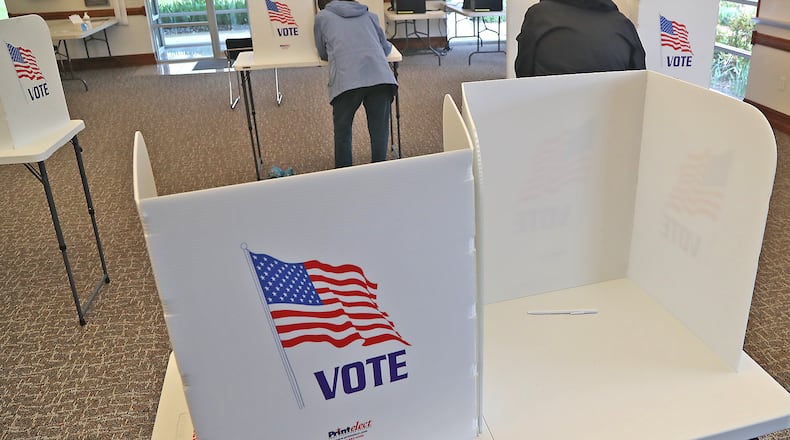Springfield City School District
Springfield school district residents passed the continuing 5.06-mill levy that will generate $3.5 million a year for general permanent improvements.
According to results, 50.51%, or 2,382, of voters were for the levy and 49.49%, or 2,334, of voters were against the levy.
“The district is very grateful to the voters who continue to support our schools and students. By passing this Continuous Permanent Improvement Levy, Springfield voters have provided a great service to the future of our district,” Superintendent Bob Hill said.
The funds will be used for expenses related to buildings, athletics facilities, grounds, capital improvement projects, and maintenance and repairs of school property and certain equipment items.
“The funding will provide a stream of revenue to address ongoing maintenance needs as our school buildings age, such as roofs, HVAC systems or parking lots, and keep our facilities in the state-of-the-art condition that our students and staff deserve,” Hill added.
Since this levy is a replacement of the 5.06-mill bond levy that passed in 2000, there will not be any new taxes for property owners.
Hill said the community continues to be supportive of the district, which he says “speaks volumes to the value that the city places on our students and their success.”
Clark-Shawnee Local School District
Clark-Shawnee school district residents rejected for the second time the continuing 12.1-mill substitute levy that would continue to generate $4.7 million for district operations.
According to results, 52.88%, or 1,311, of voters were against the levy and 47.12%, or 1,168, of voters voted for it.
The substitute levy combined two existing operational levies — an emergency levy first approved in 2012 that generates $2.4 million annually and an emergency levy first approved in 2014 that generates $2.2 million annually. It would not have raised taxes as this is the same amount the district now collects.
Superintendent Brian Kuhn said the school board and administration will evaluate Tuesday’s results and make a determination about their next steps.
“The approval of the substitute levy would not have increased taxes for the current residents of Springfield Twp.,” he said. “These existing levies are critical to our ability to continue to provide the high-quality education our community expects, and we are committed to working with our community to decide the best path forward.”
The levy would continue to pay for operating expenses for the district such as supplies, utilities, salaries, materials and programs.
The combined levy accounts for 23% of the district’s existing operating budget. The levy last renewed in 2012 will expire at the end of this year and the levy last renewed in 2014 is set to expire in 2024.
“The 2012 levy generates $2,463,333 annually for district operations and, if not renewed by the end of the year, will require the district to make at least $2.5 million in reductions,” Kuhn said. “Reductions of that magnitude will be a significant challenge as we continue to meet the needs of our students.”
Last November, voters first rejected the same substitute levy with 51.93%, or 1,104, voting against and 48.07%, or 1,022 for it.
West Liberty-Salem Local School District
West Liberty-Salem school district residents passed the five-year, 1% renewal income tax levy that will generate $1.6 million of the district’s regular operating budget.
According to results, 55.87%, or 352, of voters were for the levy and 44.13%, or 278, of voters were against the levy.
Superintendent Kraig Hissong said he is “very pleased” the levy passed.
“We want to thank our community for their continue support. The income tax levy has become a very important part of our local funding base and helps the district continue to provide the educational programming that makes West Liberty-Salem great,” he said.
The income tax levy is intended to generate operational revenue, and support student activities and programs such as band, choir, science Olympiad, athletics and others; textbooks and instructional materials; school security and safety improvements; technology and support; school staffing; special education services; bus transportation; and general classroom programs and support.
There will not be any new taxes as this is a renewal levy that voters have renewed nine times since 1992 when voters approved a three-year levy. It was set to expire this year, but will now provide funding for the next five years from 2023-27.
About the Author

